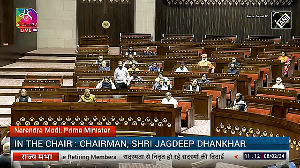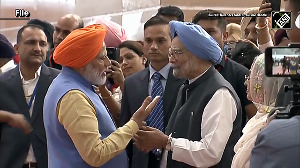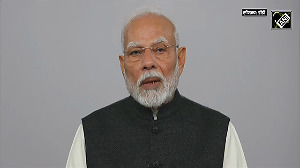GST rates would depend upon whether the commodity is used by a rich person or a common man

The historic Goods and Services Tax regime on Wednesday came a step closer to meet its July 1 target of rollout, with the Lok Sabha approving four supplementary legislations.
The Central GST Bill, 2017; The Integrated GST Bill, 2017; The GST (Compensation to States) Bill, 2017; and The Union Territory GST Bill, 2017 were passed after negation of a host of amendments moved by the opposition parties.
Replying to the seven-hour-long debate, Finance Minister Arun Jaitley said the GST, which will usher in a uniform indirect tax regime in the country, will make commodities “slightly cheaper”.
He said the GST rates would depend upon whether the commodity is used by a rich person or a common man.
Jaitley said once the new regime is implemented, the harassment of businesses by different authorities will end and India will be one rate for one commodity throughout the country.
He said the GST Council, comprising finance ministers of Union and states, had agreed to take a decision on bringing real estate within the ambit of the new tax regime within a year of its rollout.
On the impact of GST on prices, Jaitley said: “Today you have tax on tax, you have cascading effect. When all of that is removed, goods will become slightly cheaper”.
On why the Council has decided on multiple GST rates, Jaitley said one rate would be “highly regressive” as “hawai chappal and BMW cannot be taxed at the same rate”.
He said currently food articles are not taxed and those will continue to be zero rated under the GST. All other commodities would be fitted into the nearest tax bracket.
The GST Council has recommended a four-tier tax structure -- 5, 12, 18 and 28 per cent. On top of the highest slab, a cess will be imposed on luxury and demerit goods to compensate the states for revenue loss in the first five years of GST implementation.
However, the Central GST law has pegged the peak rate at 20 per cent and a similar rate has been prescribed in the State GST law, which takes the peak rate to 40 per cent which will come into force only in financial exigencies.
Jaitley said the cess would be transient for a period of five years so that the proceeds can be utilised to compensate the states.
Touted as the biggest taxation reform since Independence, GST will subsume central excise, service tax, VAT and other local levies to create an uniform market. GST is expected to boost GDP growth by about 2 per cent and check tax evasion.
Jaitley said that GST Council is working on the basis of consensus and slowly all items will come within the ambit of the new indirect tax regime, which will ensure free flow of goods and services throughout the country.
“The hard work put in by GST Council members and officers bore fruits today in terms of 4 classic pieces of legislation passed by the Lok Sabha,” Revenue Secretary Hasmukh Adhia tweeted later.
Adhia termed the passage of the four laws as a “historic milestone in economic history of this country”.
Replying to the discussion on the four bills, Jaitley said once the new tax regime is rolled out, a businessman will have to deal with only one assessing officer instead of multiple authorities at present.
The Bill will also improve tax compliance and ensure that assessee get input credit of the taxes paid.
To opposition questions as to why the government brought the legislations as ‘Money Bills’, Jaitley cited the Constitutional provisions and said that since 1950 all tax-related legislations were brought before Parliament as Money Bill.
With regard to centralised registration to banks, the minister said the GST Council will take a final decision in this regard.
Elaborating on the anti-profiteering provisions, he said these are meant to ensure that the benefits of reduction in tax rates are passed on to the consumers and there should be no “unjust enrichment”.
Responding to the concerns expressed by members on bringing agriculturists within the ambit of GST, he said the GST bill have provided a definition of agriculturists for the purpose of exemption from registration.
Prime Minister Narendra Modi on Wednesday hailed the passage of GST supplementary bills by the Lok Sabha.
"Congratulations to all the countrymen over passage of the GST bills. New Year, New Law, New Bharat," he said in a tweet in Hindi soon after the legislation was passed.
With the Lok Sabha approving four supplementary legislations, the historic GST regime came a step closer to meet its July 1 target of rollout.
He further said most of the agricultural produce would continue to be zero rated and there should be “no confusion” about it.
As regards Jammu and Kashmir, the finance minister said the law passed by Parliament will not apply to the state which will have to legislate its own law and integrate with the GST regime.
On the powers of CAG to audit GST, the minister said that the official auditor draws its power from the Constitution and the CAG Act and there was no need to mention it separately in the legislations.
Jaitley also dismissed the contention that GST would erode the power of Parliament and state legislatures to levy taxes. He said the taxation powers would continue to be with the legislatures and would be used on the recommendations of the GST Council.
Under the new regime, sovereignty would be shared between the Centre and the states.
“The GST idea has created a grey area (with regard to power of Centre and states)... Taxes will be jointly imposed by Centre and states, there will be one tax,” he said, adding an expert committee has been appointed to remove bottlenecks relating to GST implementation.
Photograph: Anindito Mukherjee/Reuters






 © 2024 Rediff.com -
© 2024 Rediff.com -